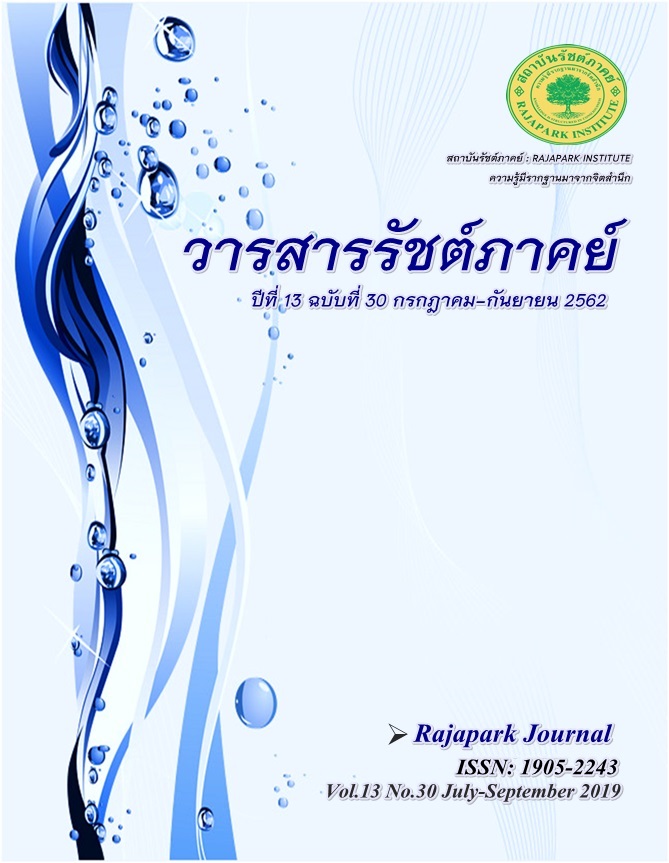Problem of Multidisciplinary Participation in Criminal Justice Process for Children and Youth
Main Article Content
Abstract
The problems concerning multidisciplinary participation in criminal justice processes for children and youth are as follows: In interrogating children and youth committing offences, there is a defective exemption that allows investigation officers to conduct interrogations. Regarding the problem of multidisciplinary participation in searching for facts regarding children and youth charged with actions the law determines as unlawful without legal prescriptions. If a multidisciplinary team participates in the investigation of the facts, the facts may prove to be variegated and based on the perspectives of different points of view. In comparing the Thai and selected foreign jurisdictions concerning multidisciplinary participation. Certain countries have agencies or organizations which participate in criminal justice processes for children and youth, but these are not designated by the term “multidisciplinary team.” In studying documents in addition to carrying out interviews and “brainstorming” with experts, guidelines for amending the law in the current connection were framed. It is deemed appropriate to allow multidisciplinary teams to participate at the investigation stage for children and youth committing offences in all cases without exception. Including the search for facts.
Article Details
Views and opinions appearing in the Journal it is the responsibility of the author of the article, and does not constitute the view and responsibility of the editorial team.
References
Human Rights Brief, 7(2).
Human Rights Coordinating Committee. (2001). HUMAN RIGHTS: Collecting Treaties Important International
Human Rights. Bangkok: Human Rights Coordinating Committee.
Oroongroj et al. (2007). Research and study project for monitoring and evaluation of the provision of
multidisciplinary practice in child interrogation according to the Code of criminal procedure Section 133
bis. Bangkok: Thammasat University Research and Consultancy Institute (TU-RAC).
Panitpan, S. (1991). Academic Articles for Entrepreneurship Lecture on SK.607, Working as a Faculty or
Multidisciplinary. Bangkok: Thammasat University.
Patjekvinyusakul, V. (1994). Standards of Treatment for Children accused of committing on offense under the
Convention on the Rights of the Child. DULPAHA, 5(41), 18-36.
Phoprom, A. (2011). Access to justice for children and youth the Way to Sustainable Social Justice, presented at
The 9th national symposium of justice administration public involvement in sustainable development of
the justice system. Bangkok: Office of Justice Affairs.
Rabi Bhadanasak Research and Development Institute. (2010). Research project on classification, remediation,
treatment, rehabilitation and follow-up of children and youth entering the justice system in relation to
the judiciary. Office of the Judiciary. Bangkok: Office of the Judiciary.
Rios-Kohn, R. (1998). The Convention on the Rights of the Child: Progress and Challenges. Geo. J. on Fighting
Poverty, 5(2), 139.
The Convention on the Rights of the Child, 1989.
The Declaration of the Rights of the Child, 1948.
The Declaration of the Rights of the Child, 1959.
The Geneva Declaration of the Rights of the Child, 1924.
Todres, J. (1998). Emerging Limitations on the Rights of the Child: the U.N. Convention on the Rights of the Child
and Its Early Case Law. Columbia Human rights Law Review, 30(1), 159-200.
Van Bueren, G. (1998). The International Law or the Rights of the Child (International Studies in Human Rights).
The Hague: Nijhoff.

